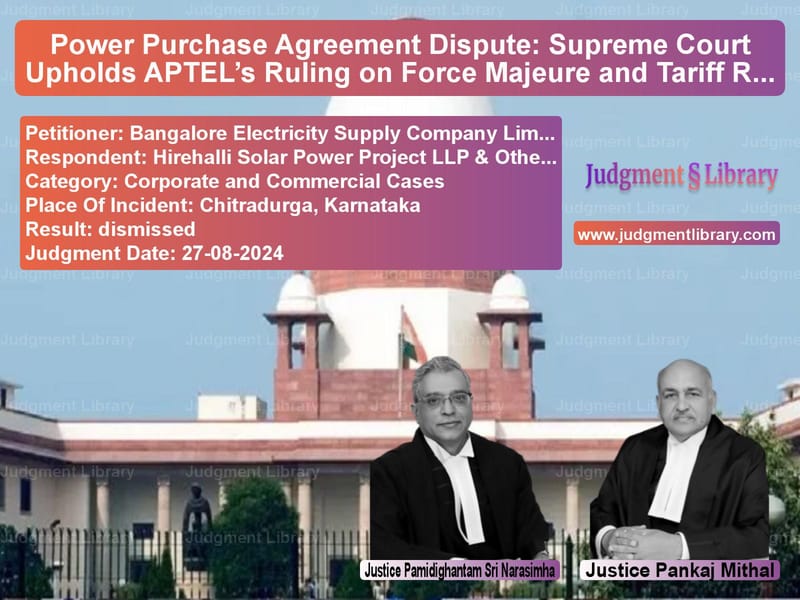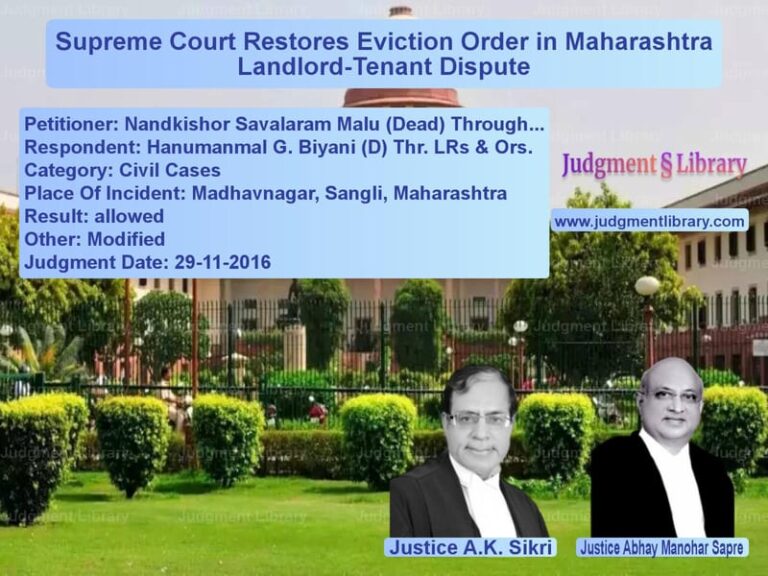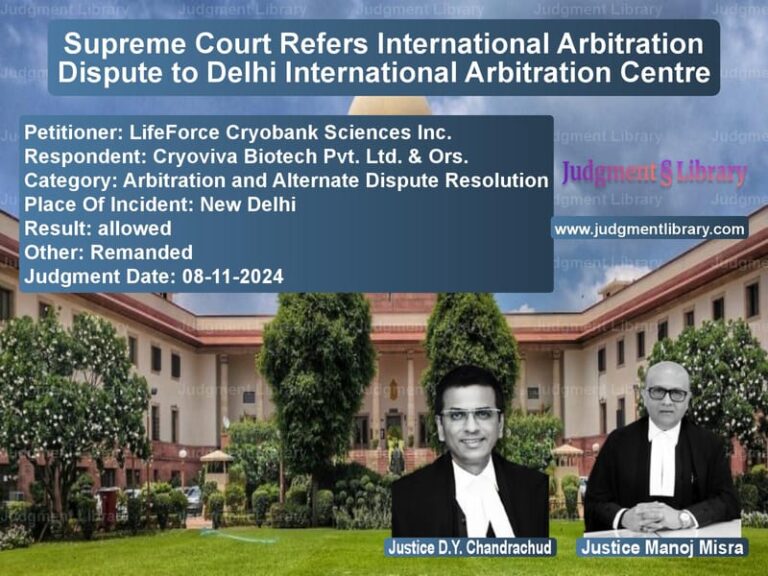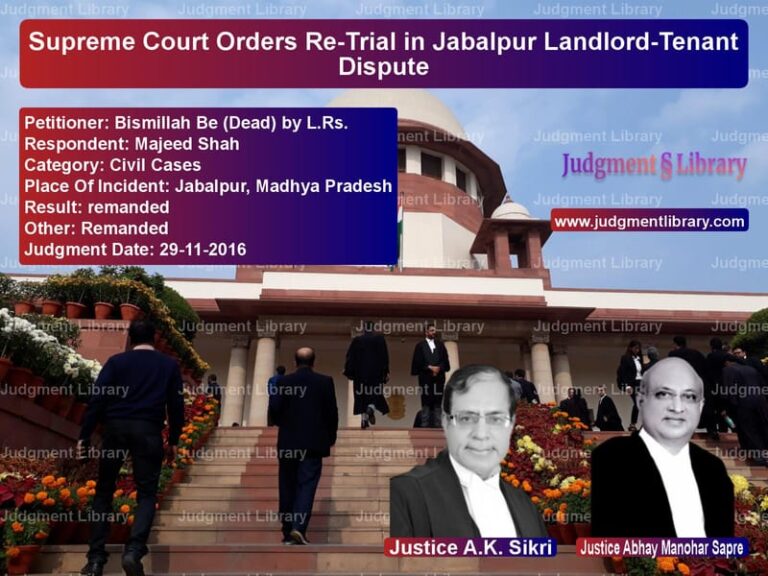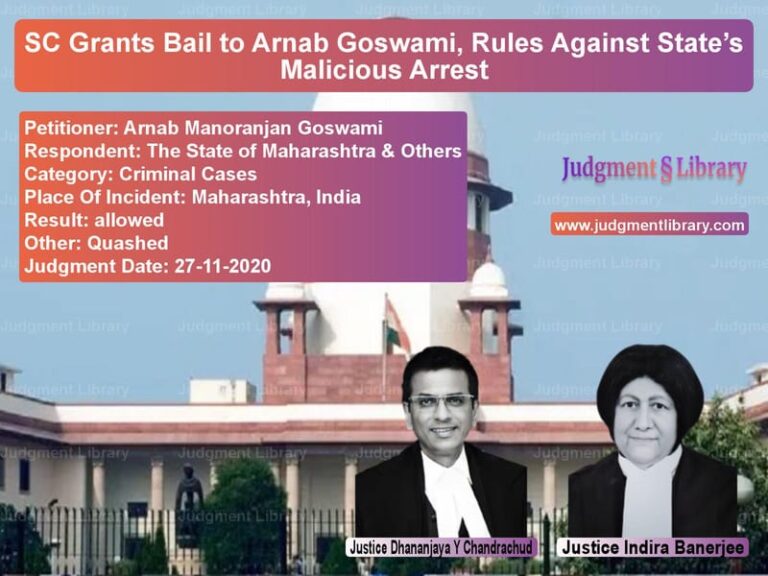Power Purchase Agreement Dispute: Supreme Court Upholds APTEL’s Ruling on Force Majeure and Tariff Reduction
The Supreme Court recently ruled in the case of Bangalore Electricity Supply Company Limited vs. Hirehalli Solar Power Project LLP & Others, a significant judgment addressing delays in the commissioning of solar power projects, the applicability of force majeure clauses, and the legitimacy of tariff reductions imposed by regulatory bodies.
Background of the Case
The dispute arose when the Bangalore Electricity Supply Company Limited (BESCOM) entered into a Power Purchase Agreement (PPA) with Hirehalli Solar Power Project LLP for the commissioning of a solar power project in Chitradurga, Karnataka. The agreement mandated that the project be completed within 18 months from the effective date. However, due to various regulatory delays, the project was commissioned after 24 months. BESCOM imposed penalties and reduced the agreed tariff, leading the solar power developer to challenge the decision before regulatory authorities.
Key Issues in the Case
The legal battle primarily revolved around the following questions:
- Was the delay in commissioning the project caused by a force majeure event?
- Did the Karnataka Electricity Regulatory Commission (KERC) and the Appellate Tribunal for Electricity (APTEL) correctly assess the delay?
- Was the tariff reduction imposed by BESCOM justified?
- Should the developer be penalized with liquidated damages?
Arguments Presented
Petitioner (BESCOM)
The electricity supply company argued that:
- The delay was due to the developer’s inefficiency, not unforeseen circumstances.
- The force majeure clause in the PPA should be strictly interpreted, and the developer had not met the required conditions to invoke it.
- The tariff reduction to Rs. 4.36 per unit (from the originally agreed Rs. 8.40 per unit) was necessary to protect consumer interests.
- The developer failed to issue proper notices regarding force majeure as required under Article 8.3(b) of the PPA.
Respondent (Hirehalli Solar Power Project LLP)
The solar power developer countered by stating:
- The delay was primarily caused by the government’s slow land conversion approvals and the time taken for obtaining evacuation approval.
- The government had acknowledged these issues and even granted an extension.
- BESCOM had already approved a 6-month extension, and penalizing the project for this delay was unfair.
- The project was completed within the extended time frame, and reducing the tariff retrospectively would be financially damaging.
Supreme Court’s Observations
The Supreme Court carefully analyzed the facts and ruled in favor of the solar power developer, making the following observations:
- The delay was due to factors beyond the control of the developer, including regulatory and procedural hurdles.
- The force majeure clause in the PPA covered situations where approvals and licenses were delayed despite the developer’s best efforts.
- The government itself had recognized the widespread issue of land conversion delays for solar projects, which justified the extension.
- BESCOM had earlier granted an extension but later attempted to impose penalties and a tariff reduction, which was contradictory.
Final Judgment
On August 27, 2024, the Supreme Court delivered its ruling:
- The force majeure clause was validly invoked by the developer.
- The commissioning delay was not attributable to the developer’s negligence.
- The original tariff of Rs. 8.40 per unit must be restored, and BESCOM was ordered to pay the difference.
- The imposition of liquidated damages was overturned.
- BESCOM must also pay late payment surcharge as per the terms of the PPA.
Implications of the Judgment
This ruling has significant implications for the renewable energy sector:
- Strengthens contract enforcement – The decision ensures that regulatory authorities must respect contractual agreements, especially in the renewable energy sector.
- Protects developers from unfair penalties – The judgment clarifies that delays caused by government inefficiencies should not penalize private developers.
- Encourages investment – The ruling provides assurance to investors in the solar energy sector that their contracts will be upheld.
Conclusion
The Supreme Court’s judgment reinforces the importance of fair regulatory practices in energy contracts. By upholding the validity of force majeure and preventing unjustified tariff reductions, the ruling promotes transparency and consistency in India’s energy sector. The decision sets a precedent that protects developers while ensuring that electricity supply companies operate within their contractual obligations.
Petitioner Name: Bangalore Electricity Supply Company Limited.Respondent Name: Hirehalli Solar Power Project LLP & Others.Judgment By: Justice Pamidighantam Sri Narasimha, Justice Pankaj Mithal.Place Of Incident: Chitradurga, Karnataka.Judgment Date: 27-08-2024.
Don’t miss out on the full details! Download the complete judgment in PDF format below and gain valuable insights instantly!
Download Judgment: bangalore-electricit-vs-hirehalli-solar-powe-supreme-court-of-india-judgment-dated-27-08-2024.pdf
Directly Download Judgment: Directly download this Judgment
See all petitions in Contract Disputes
See all petitions in Commercial Arbitration
See all petitions in unfair trade practices
See all petitions in Enforcement of Awards
See all petitions in Judgment by P.S. Narasimha
See all petitions in Judgment by Pankaj Mithal
See all petitions in dismissed
See all petitions in supreme court of India judgments August 2024
See all petitions in 2024 judgments
See all posts in Corporate and Commercial Cases Category
See all allowed petitions in Corporate and Commercial Cases Category
See all Dismissed petitions in Corporate and Commercial Cases Category
See all partially allowed petitions in Corporate and Commercial Cases Category

